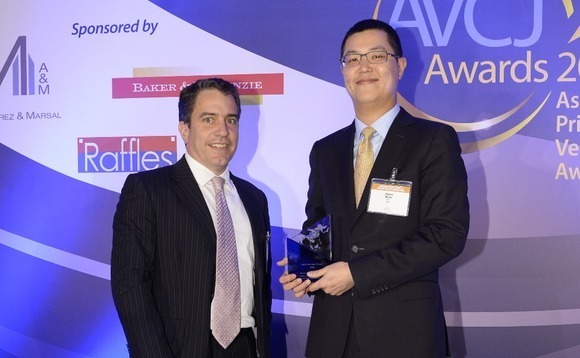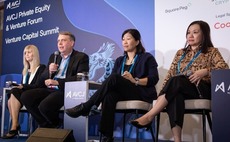
AVCJ Awards 2015: Exit of the Year - IPO: Hong Kong Broadband

Having acquired Hong Kong Broadband Network in 2012, CVC Capital Partners built on an already successful business, which continues to outperform in the public markets
It normally takes about six months to prepare a company for a Hong Kong IPO. However, CVC Capital Partners started the laying the ground for an offering by Hong Kong Broadband Network (HKBN) almost as soon as it acquired the business in 2012.
"As part of our investment thesis we identified a Hong Kong IPO as the optimum next step for HKBN and so together with management we immediately implemented a strategy to ensure public market investors were familiar with the business," says James Redmayne, a director with CVC. This involved the CEO and CFO running a roadshow after every set of half year and full year results, during which they explained the HKBN business model and kept investors up-to-date on the company's progress.
Then in October of last year, HKBN started formal preparations for a listing in the first quarter of 2015. The company began trading on March 5, having raised HK$5.8 billion ($750 million) by pricing the deal at HK$9.00 per share, the top end of the indicative range.
CVC held a 68.44% interest in HKBN ahead of the IPO. It sold 539.2 million shares in offering, realizing proceeds of HK$4.85 billion and reducing its stake to 14.44%. This fell to 5.95% after the over-allotment option was fully exercised, netting the GP a further HK$767 million. Two co-investors, GIC Private and AlpInvest Partners, also made partial exits, receiving HK$749 million between them.
In September, CVC and its co-investors sold a 7.6% stake in HKBN following the expiry of a six-month post-IPO lock-up period. The stake was worth approximately HK$679 million. For CVC alone, this represented a HK$482 million payout and a final exit, with a money multiple of approximately 3.5x. AlpInvest also sold its remaining shares, but GIC continues to hold a small stake.
A position of strength
CVC bought HKBN from Hong Kong Television Network (then City Telecom) in early 2012 for HK$4.87 billion. The PE firm subsequently sold a $40 million stake to GIC and a $29 million stake to AlpInvest.
HKBN, the number two internet service provider in Hong Kong, was already a successful business when CVC came in, having already increased subscriber numbers from 683,000 in 2007 to 1.3 million by 2012. In addition, the company had demonstrated impressive revenue growth against its fixed line industry peers with a compound annual growth rate (CAGR) of 9.1% in 2012 - 2% ahead of second-placed Hutchinson Telecom Hong Kong.
As such, the private equity firm's first priority was to keep a strong business ticking over. One way to achieve this was by retaining existing management and properly incentivizing them, which led to members of the management team being invited to co-invest individually alongside CVC. The core of executives involved asked to extend the co-investment program to include 79 managers in total. If the business outperformed, they would receive a larger share of the upside.
The GP introduced several initiatives to grow the business, including expanding HKBN's Wi-Fi coverage to 15,000 hot spots across Hong Kong and completing the bolt-on acquisition of Y5Zone. The B2B wholesale provider of wireless broadband network services operates 6,500 hot spots in Hong Kong and more than 600 in selected cities on the mainland. This deal alone took the combined HKBN-Y5Zone Wi-Fi network in Hong Kong to 7,000 hot spots.
When preparations for the IPO commenced, HKBN had 2.1 million residential subscribers, or a 35% market share, and 1,900 commercial subscribers. It recorded turnover of HK$2.13 billion in 2014, up from HK$1.94 billion the previous year. A net loss of HK$138.9 million also turned into a profit of HK$53.5 million.
"Due to the low interest rate environment, there was significant appetite for high-yield stocks," Redmayne recalls. "HKBN had historically made a significant investment - about HK$4.1 billion over a number of years - in its fiber infrastructure and as a result it had entered a highly cash generative phase. This cash generation, combined with the incredibly strong growth - the business was seeing 15% profit growth and 30% cash flow growth - offered investors a unique and attractive combination of growth and yield."
Ringing endorsement
Canada Pension Plan Investment Board (CPPIB), a key global relationship for CVC, had expressed an interest in investing HKBN quite some time ago. Ahead of the IPO, the pension plan spent time familiarizing itself with the business and established a strong relationship with management. It then came in as a cornerstone investor in the IPO, paying $200 million for a 17.14% interest in the company.
"When it came to the IPO, CPPIB made it clear that they would like to be a cornerstone investor. For CVC, this participation was a key element to the deal given their high-quality reputation, long-term investment approach and strong track record," says Redmayne.
HKBN's turnover jumped 10% year-on-year to reach HK$2.34 billion this year, while net profit increased 95% to HK$104 million. The stock is currently trading around the HK$10.00 mark, having jumped more than 10% since its listing.
"At times there is a general misconception that PE firms only look to sell a business when it reaches at its peak. This couldn't be further from the truth," Redmayne adds. "PE funds have a finite life and so we need to divest in order to return capital to investors. We want to have confidence that the businesses will continue to perform post-listing and deliver public market investors an attractive return on their investment."
Latest News
Asian GPs slow implementation of ESG policies - survey
Asia-based private equity firms are assigning more dedicated resources to environment, social, and governance (ESG) programmes, but policy changes have slowed in the past 12 months, in part due to concerns raised internally and by LPs, according to a...
Singapore fintech start-up LXA gets $10m seed round
New Enterprise Associates (NEA) has led a USD 10m seed round for Singapore’s LXA, a financial technology start-up launched by a former Asia senior executive at The Blackstone Group.
India's InCred announces $60m round, claims unicorn status
Indian non-bank lender InCred Financial Services said it has received INR 5bn (USD 60m) at a valuation of at least USD 1bn from unnamed investors including “a global private equity fund.”
Insight leads $50m round for Australia's Roller
Insight Partners has led a USD 50m round for Australia’s Roller, a venue management software provider specializing in family fun parks.






